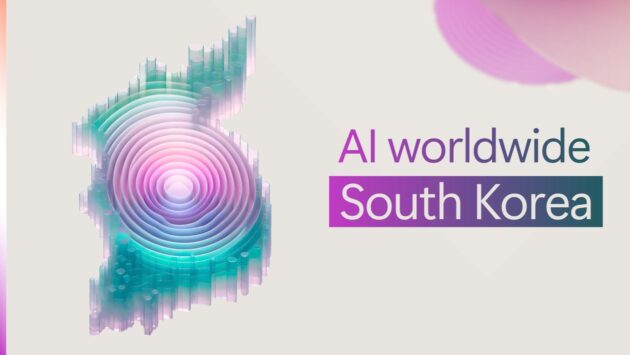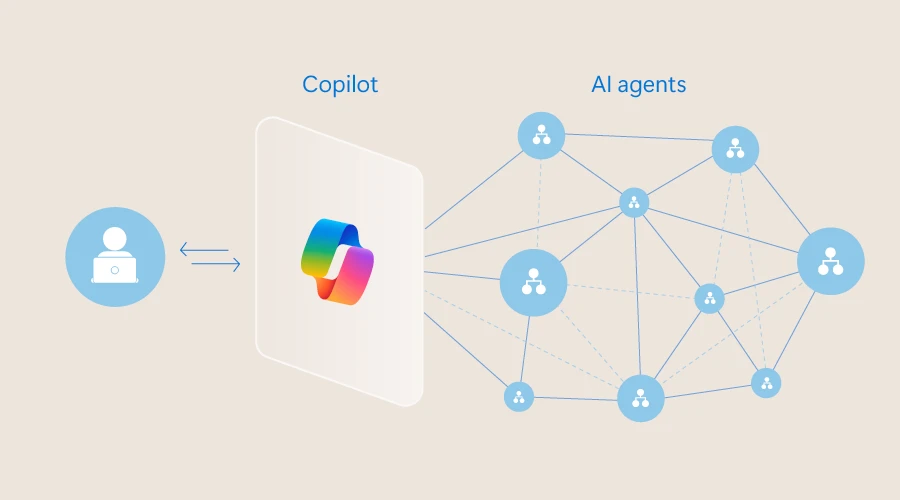
How South Korea is building an AI-powered future for everyone
At the Microsoft AI Tour in Seoul, Korean companies demonstrated how AI is moving beyond efficiency gains to become a true growth engine.

Every day, we hear new stories of how AI is transforming business, creating efficiencies, and adding new value for organizations across industries. As this technology continues to advance, we’ve arrived at a pivotal point with a key innovation: AI agents.
From the world’s biggest companies using agents to automate business processes that run tens of thousands of times a day to each of us now having the power to quickly create custom AI assistants using plain language—agents are reshaping work for both organizations and individuals.
In this edition, we hear from Charles Lamanna, Corporate Vice President of Business and Industry Copilot, who is spearheading the work at Microsoft to bring AI agents to organizations. In this Q&A, Charles shares his insights on how we arrived at this moment in AI transformation, agents in the workplace for the organization and the individual, why customers that are AI-first are thriving, and where agents will start to show up outside of work.
Let’s learn more from Charles about the transformative potential of agents and where this technology is headed next.
AI can feel abstract, but to understand the moment we’re in, it’s helpful to think about other turning points in history where technology became a force multiplier for people.
Take the tractor, for example. Two hundred years ago, nearly everyone in America farmed for a living. Now, it’s less than 2%, because tractors completely changed the game, freeing people up to innovate elsewhere. Or clothing—not that long ago, most people owned a few outfits. Then mechanized looms came along and clothing became abundant.
Steve Jobs famously called computers a “bicycle for the mind” because just as a bicycle helps humans move far more efficiently, computers amplified what our minds could achieve. Stretching that analogy, if computers are the bicycle, AI is the jetpack of the mind. It’s not just speeding us up, it’s lifting us to entirely new heights.
If computers are the bicycle, AI is the jetpack of the mind. It’s not just speeding us up, it’s lifting us to entirely new heights.”
—Charles Lamanna
We’re at an exciting time where AI puts deep expertise directly at everyone’s fingertips, breaking down barriers to knowledge. Just as tractors transformed farming and mechanized looms changed clothing production, AI agents are transforming fields like law, medicine, and software development. They’re the tractors for lawyers, the mechanized looms for doctors, and combustion engines for developers.
Adopting an AI-first mindset is crucial because it fundamentally transforms the way businesses operate. AI isn’t just a novelty—it’s a core capability that is necessary to stay relevant.

Businesses embracing AI-first thinking reach new levels of scale that are just not possible without the speed and power of AI. For example, global supply chains are enormously complex. AI can quickly process vast amounts of data, predict trends, and take actions in real time—tasks that would take people weeks or months can now happen in hours or minutes. AI agents can generate reports or even actively make informed decisions under human oversight.
A core component for an AI-first company is agents—think of them as the new apps. They can execute core tasks with and on behalf of people, unifying business data, apps, email, chat platforms, and more. Agents can range from simple to advanced, doing everything from addressing customer service inquiries, to doing the heavy lifting of data analysis.
Imagine replicating this efficiency across every element of a company: human resources, logistics, sales, finance, and research and development. You can see how profound this transformation is across the business.
Right now, we’re seeing the beginnings of a major transformation where AI agents are shifting from being used as helpful “add-ons” to becoming the core drivers of business. We can think about this AI journey in a few stages.

Initially, we’re seeing AI augment people in an organization—everyone has a powerful AI assistant that deeply understands their specific work, makes them more productive, and makes daily tasks easier.
As organizations move further along this journey, we’ll see a big jump. AI agents will evolve to become key team members, capable of autonomously managing complex workflows and boosting efficiency considerably. People will set high-level strategies, provide direction and manage these agents. And this will continue to evolve.
I think companies that have adopted an AI-first mindset are already working towards that future as more advanced agent capabilities are added.
It’s exciting to see companies adopting AI agents in a big way.
Take Estée Lauder Companies, for instance. They have 80 years’ worth of valuable consumer data from surveys, clinical trials, promotions, and product usage. With an agent called ConsumerIQ, built using Microsoft Copilot Studio, employees can instantly tap into insights that used to take hours of manual research. They can ask, “What are the latest trends for mascara use among Gen Z?” and within seconds, the agent will collect, summarize, and deliver the answer.
Dow spends billions annually on freight shipping and receives thousands of invoices daily. They built agents that analyze and detect anomalies and have already uncovered billing errors—like catching a $30,000 charge that should’ve been $5,000.
At Microsoft, we’re also using agents, and one example is on Azure.com. With more than 400 product and service pages, customers struggled to find the information they needed. The team built an AI assistant using Copilot Studio, and visitors who used the AI assistant showed 70% more pages visited per session and a 21.5% increase in conversion rates.
How industry-specific AI fuels growth
Learn moreWe’re going to see agents show up more in our daily lives, and I think people will be excited about it. Imagine having a personal agent that handles annoying tasks no one enjoys—sorting emails, paying bills, or making appointments.
In healthcare, agents can become personal health assistants, proactively monitoring your wellness and reminding you about medications. This could make life easier for those managing chronic health problems.
On top of all this, anyone will be able to create agents for their own use without any coding experience. It won’t be something that only developers or coders are trusted to do.
Looking ahead, the possibilities are limitless. Imagine a future where agents effortlessly handle life’s complexities, freeing you up to spend more time on the people and activities that bring you joy and meaning. That’s the future we’re building towards, and it’s closer than you might think.
AI agents are an exciting space for business leaders to explore, from being able to assist with document creation at an individual worker’s level to taking on the most intensive and critical business processes at a company. Agents will vary in complexity, and they’ll come from many different sources—from the agents built by Microsoft or our partner ecosystem to the custom agents tailored to take on your exact challenge. With this rise of AI agents, we will see even more ways for AI deliver on the promise of real business value.
Here are a few recommended resources: